Exercise Support

Five minutes of plate support every day to improve posture and unlock the correct posture of plate support

Can exercise boost the immune system ?
Exercise can indeed boost the immune system through various mechanisms, including enhanced circulation, reduced inflammation, weight management, stress reduction, improved sleep, increased self-esteem and mental health, microbiome diversity, temperature regulation, prevention of chronic diseases, and social interaction. Regular moderate exercise is generally considered beneficial for the immune system, but it's essential to consult with healthcare professionals to determine the appropriate amount and intensity of exercise for individual needs and circumstances.

How does exercise affect sleep quality ?
Exercise is crucial for maintaining a healthy lifestyle and has a significant impact on sleep quality. Regular physical activity can improve sleep onset, increase deep sleep, reduce stress and anxiety, regulate body temperature, and promote better breathing during sleep. To incorporate exercise into your daily routine, start slowly, choose enjoyable activities, schedule workouts, mix up your routine, be mindful of timing, listen to your body, stay hydrated, get enough rest, seek support, and track your progress.

How does exercise influence self-esteem ?
Exercise has a profound impact on self-esteem, positively influencing confidence, body image, and mental health. Physical benefits include weight management through fat reduction and muscle tone, as well as improved cardiovascular health and immune system function. Mental benefits include stress reduction through endorphin release and mindfulness, and enhanced cognitive function with improved memory and problem-solving abilities. Social benefits come from community building through group activities and support systems, as well as personal achievement through goal setting and feedback. Overall, regular physical activity can significantly enhance self-esteem by promoting physical, mental, and social well-being.

How does exercise affect mood and emotions ?
Exercise has numerous positive impacts on mood and emotions, including the release of endorphins for a "runner's high," reduction in anxiety and stress by lowering cortisol levels, and improvement in self-esteem through goal setting and physical changes. Regular activity also enhances sleep quality by regulating sleep cycles and cognitive function by increasing blood flow to the brain. Social interaction during exercise provides emotional support and long-term benefits include prevention of depression and building resilience against stress.

How does exercise contribute to bone health ?
Exercise contributes to bone health by increasing bone density, improving balance and coordination, strengthening muscles, improving posture, reducing inflammation, and enhancing cardiovascular health. This reduces the risk of osteoporosis, fractures, back pain, and other health issues.

How does exercise contribute to mental rejuvenation ?
Exercise plays a crucial role in mental rejuvenation by releasing endorphins, improving blood flow, enhancing neuroplasticity, reducing stress, improving sleep quality, facilitating social interaction, and boosting self-esteem. Regular physical activity can significantly contribute to improved cognitive functions, emotional stability, and overall mental well-being.

What is the relationship between exercise and mental health ?
Exercise has a profound impact on mental health, enhancingExercise has a profound impact on mental health, enhancing reducing stress, improving sleep quality enhancing mood and cognitive function, reducing stress, improving sleep quality, and fostering social interaction. Regular physical activity stimulates the release of neurotransmitters like endorphins, serotonin, and dopamine, leading to improved mood, relaxation, and better cognitive abilities. It also helps manage cortisol levels, promotes deeper sleep, and provides emotional support through group activities, ultimately contributing to overall mental well-being.

Does consistent exercise regulate sleep patterns ?
Consistent exercise has been shown to have a positive impact on sleep patterns, helping regulate the body's internal clock and increase the production of sleep-promoting hormones. Regular physical activity can lead to better sleep quality, reduced stress and anxiety, and improved overall health. To reap these benefits, it's important to incorporate regular exercise into your routine, starting slowly and gradually increasing intensity and duration over time.

How does exercise affect bone remodeling ?
Exercise is crucial for maintaining bone health by stimulating bone remodeling, a continuous process of breaking down and rebuilding bones. This process is essential for maintaining bone density and strength, preventing osteoporosis, and other bone-related diseases. Regular exercise increases the activity of osteoblasts and reduces the activity of osteoclasts, leading to improved bone density and strength. Weight-bearing exercises, resistance training, balance exercises, and high-intensity interval training are effective ways to maintain bone health.

What role does endorphin release during exercise play in improving mood ?
**The Role of Endorphin Release During Exercise in Improving Mood:** Endorphins, acting as natural painkillers and contributors to feelings of pleasure, play a crucial role in the connection between exercise and mood enhancement. The "Runner's High" phenomenon, characterized by euphoria and reduced pain perception, is attributed to endorphin release during sustained physical activity. Immediate benefits include pain reduction, stress relief, and pleasure induction. Long-term mood enhancement can be achieved through regular exercise habits, chronic pain management, and mental health support. To maximize endorphin release during exercise, individuals should choose enjoyable activities, maintain consistency, gradually increase intensity, stay hydrated and nourished, and incorporate variety. Understanding the role of endorphins can inform lifestyle choices to maximize mood benefits from exercise.
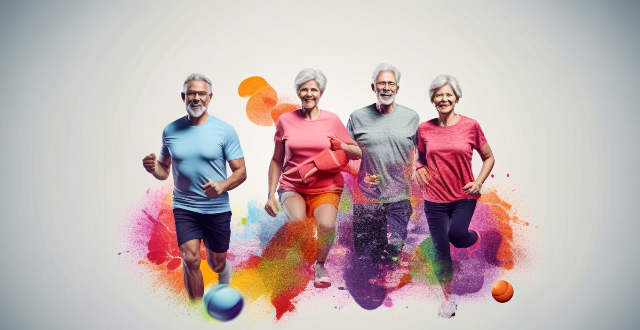
What are the psychological benefits of group exercise for older adults ?
The article discusses the psychological benefits of group exercise for older adults, including increased social interaction, enhanced cognitive function, and increased motivation and accountability. It emphasizes how group exercise can reduce feelings of isolation and loneliness, improve mood and mental health, stimulate brain activity, delay the onset of cognitive decline, provide peer support and encouragement, and promote goal setting and achievement. Overall, it suggests that participating in group exercise activities can greatly enhance the overall well-being of older adults and contribute to a higher quality of life as they age.
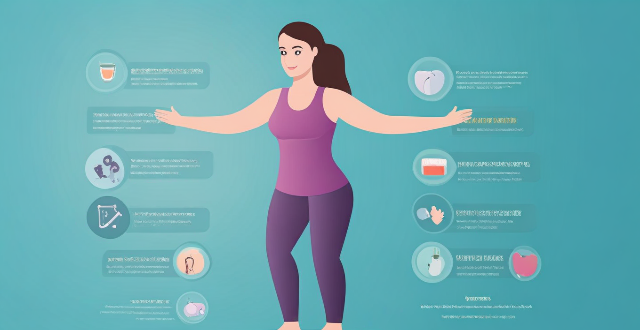
Can exercise help reduce common pregnancy discomforts like back pain and swelling ?
Exercise can help alleviate common pregnancy discomforts like back pain and swelling by strengthening core muscles, improving posture, enhancing flexibility, promoting circulation, and reducing fluid retention. However, it's important to consult with a healthcare provider before starting any exercise program during pregnancy and follow safety precautions such as starting slowly, avoiding high-impact activities, staying hydrated, and listening to your body.

Can exercise help with stress management ?
**Topic:** Can Exercise Help with Stress Management? **Summary:** * **Introduction:** The inevitability of stress and its potential impact on health highlight the importance of effective stress management. Exercise is often touted as a beneficial method for reducing stress. * **Relationship Between Exercise and Stress:** * **Physical Effects:** Exercise triggers endorphins, reduces cortisol levels, and improves sleep quality—all of which contribute to stress reduction. * **Mental Effects:** Enhanced cognitive function, increased self-esteem, and mindfulness techniques associated with exercise can aid in stress management. * **Benefits of Exercise for Stress Management:** * **Physical Benefits:** Improved cardiovascular health, weight management, and pain relief can reduce stress caused by related health issues. * **Mental Benefits:** Exercise can alleviate symptoms of anxiety and depression, improve mood, and increase resilience to stress. * **Practical Tips:** * **Setting Goals:** Start small and choose enjoyable activities to make exercise a sustainable habit. * **Consistency:** Scheduling workouts, finding an accountability partner, and tracking progress can help maintain a regular exercise routine. * **Conclusion:** Exercise is a powerful tool for managing stress, offering both physical and mental benefits. Incorporating it into one's lifestyle can significantly enhance overall well-being and resilience to life's challenges.

Can exercise physiology help in managing stress and anxiety levels ?
Exercise physiology plays a significant role in managing stress and anxiety levels by promoting various physiological responses that counteract the negative effects of these conditions on the body. By incorporating regular physical activity into your lifestyle, you can improve your overall mental well-being and reduce the impact of stress and anxiety on your daily life.
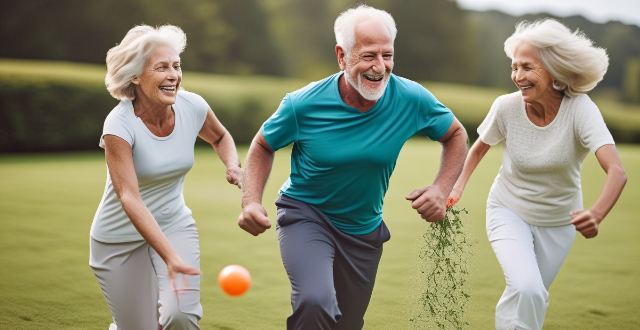
How does exercise benefit the health of older adults ?
Exercise plays a crucial role in maintaining the health and well-being of older adults. Regular physical activity can significantly improve their quality of life by preventing diseases, promoting longevity, and enhancing mental health. This text discusses the various benefits of exercise for seniors, including improvements in strength, endurance, mobility, balance, chronic disease management, stress reduction, emotional health, cognitive functioning, social interaction, independence, and overall quality of life. Engaging in regular physical activity is one of the most effective ways for seniors to maintain a healthy and fulfilling lifestyle as they age.

Can exercise physiology be used to treat chronic diseases like diabetes and hypertension ?
Exercise physiology can be effectively used to treat chronic diseases like diabetes and hypertension by improving blood sugar control, aiding in weight management, reducing blood pressure, and enhancing cardiovascular health. Individualized exercise programs, education on lifestyle modifications, and consistent support from professionals contribute to better disease management and overall well-being.

Can exercise help manage symptoms of ADHD ?
Exercise can be a powerful tool in managing symptoms of ADHD by improving focus, reducing impulsivity, increasing energy levels, and promoting better sleep. Choosing the right type of exercise, setting realistic goals, and creating a consistent routine are essential for reaping the full benefits of physical activity for ADHD management.

How does exercise influence social skills in children ?
Exercise plays a crucial role in shaping children's social skills by enhancing communication, empathy, emotional intelligence, resilience, problem-solving abilities, healthy risk-taking, and leadership skills. Physical activity helps children build self-confidence, promotes teamwork, develops empathy, enhances emotional intelligence, increases resilience, enhances problem-solving abilities, encourages healthy risk-taking, and fosters leadership skills. These skills are essential for establishing positive relationships with peers and contributing to their communities. Therefore, it is imperative to encourage children to engage in regular exercise to support their overall development and success in life.

How can older adults benefit from exercise in terms of mental health ?
Exercise is crucial for maintaining and improving mental health in older adults. It enhances mood, reduces depression symptoms, improves cognitive function, manages stress, and provides opportunities for social interaction. Incorporating regular exercise can significantly promote overall well-being in the aging population.

How can we support women who have experienced trauma or abuse ?
Supporting women who have experienced trauma or abuse requires a comprehensive approach that addresses their mental, emotional, and physical well-being. Key ways to support these women include providing safe spaces, offering emotional support, providing practical assistance, and promoting healing and recovery. By creating a safe environment, listening without judgment, respecting privacy and boundaries, showing empathy and compassion, encouraging self-care, connecting with others, assisting with legal issues, providing financial assistance, offering resources, encouraging professional help, promoting healthy coping mechanisms, and celebrating milestones, we can help these women navigate their difficult journeys towards healing and empowerment.

Can people with osteoporosis still do exercise safely ?
Osteoporosis is a condition characterized by low bone mass and deterioration of bone tissue, leading to brittle bones that are prone to fractures. It is a common concern among older adults, especially women. While exercise is generally recommended for maintaining overall health, it is important to consider the safety of physical activity for individuals with osteoporosis. In this article, we will explore whether people with osteoporosis can still do exercise safely and what precautions should be taken. Is Exercise Safe for People with Osteoporosis? Benefits of Exercise for Osteoporosis: - Improved Bone Density: Regular weight-bearing exercises can help improve bone density in individuals with osteoporosis. - Increased Strength and Balance: Resistance training and balance exercises can enhance muscle strength and reduce the risk of falls. - Better Quality of Life: Engaging in physical activities can improve mood, reduce pain, and enhance overall well-being. Risks Associated with Exercise for Osteoporosis: - Fracture Risk: High-impact activities or excessive force during exercise may increase the risk of fractures in people with osteoporosis. - Joint Stress: Some exercises may put excessive stress on joints, potentially leading to joint pain or damage. Safe Exercises for People with Osteoporosis: Weight-Bearing Exercises: - Walking: A low-impact activity that can help maintain bone density. - Dancing: A fun way to engage in weight-bearing exercise while also improving balance. Resistance Training: - Light Weight Lifting: Using light weights or resistance bands can strengthen muscles without putting too much strain on bones. - Bodyweight Exercises: Squats, lunges, and step-ups can be modified to suit individual abilities and provide resistance training benefits. Flexibility and Balance Exercises: - Tai Chi: A gentle form of exercise that focuses on slow, flowing movements to improve balance and flexibility. - Yoga: Certain yoga poses can help enhance flexibility, balance, and strength, but it is essential to avoid high-impact or bending poses that may increase fracture risk. Precautions to Take During Exercise: 1. Consult with a Healthcare Professional: Before starting any exercise program, it is crucial to consult with a healthcare professional who can assess your individual needs and risks. 2. Start Slowly: Begin with low-intensity exercises and gradually increase the duration and intensity as your body adapts. 3. Use Proper Technique: Ensure proper alignment and technique during exercises to minimize the risk of injury. 4. Wear Appropriate Footwear: Choose shoes with good support and cushioning to reduce the impact on joints and bones. 5. Avoid High-Impact Activities: Steer clear of activities like jumping or running that may increase the risk of fractures. 6. Listen to Your Body: If you experience pain or discomfort during exercise, stop immediately and seek advice from a healthcare professional. 7. Incorporate Rest Days: Allow your body time to recover between exercise sessions by including rest days in your routine.
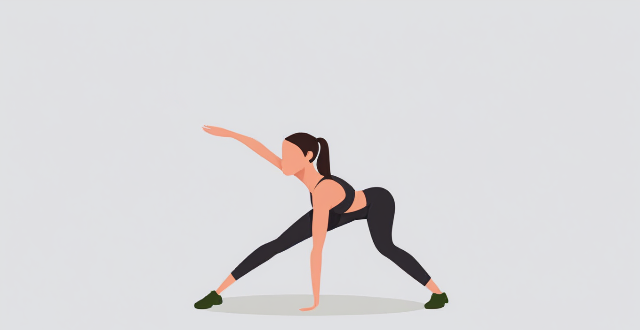
How does exercise help in managing stress ?
Stress is an inevitable part of life, but regular exercise can help manage it effectively. Exercise releases endorphins, reduces muscle tension, improves sleep quality, boosts self-esteem and confidence, provides a sense of accomplishment, and promotes social interaction. To incorporate exercise into your daily routine, start slowly, find an activity you enjoy, make it a part of your routine, mix up your routine, and don't overexert yourself. By doing so, you can reap the numerous benefits of exercise for stress management and overall well-being.
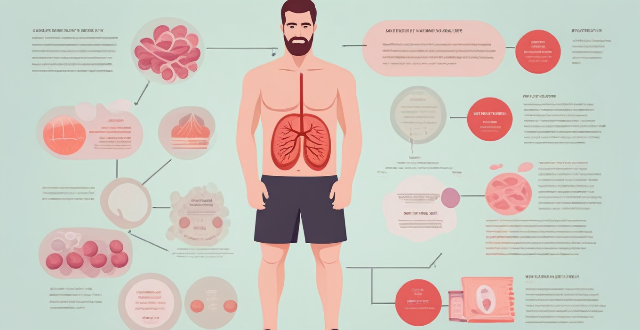
How does regular exercise contribute to boosting the immune system ?
Regular exercise has numerous health benefits, including boosting the immune system. It promotes increased blood circulation, reduces inflammation, helps in weight management, reduces stress, improves sleep quality, enhances gut health, increases antioxidant capacity, supports cardiovascular health, enhances mental health, and contributes to increased longevity. Incorporating regular physical activity into your lifestyle can support a strong and resilient immune system.

How does exercise benefit socialization in older adults ?
Exercise is not only beneficial for physical health but also plays a crucial role in enhancing socialization among older adults. Here's how: Improved Mood and Confidence, Increased Opportunities for Social Interaction through Group Activities and Outdoor Exercise, Enhanced Cognitive Function, Physical Health Benefits Supporting Social Engagement, and Mental Health and Well-being. In conclusion, regular exercise provides numerous avenues for increased socialization among older adults by improving emotional well-being, cognitive function, physical health, and creating opportunities for interaction through various activities. It's a holistic approach to enhancing the social lives of seniors, contributing to their overall quality of life.

Is weight-bearing exercise really necessary for bone health ?
Weight-bearing exercises are often recommended for maintaining bone health, but is it really necessary? Let's explore this topic in detail. Weight-bearing exercises include any activity that requires you to carry your own body weight, such as walking, jogging, dancing, climbing stairs, and weightlifting. These exercises can help strengthen bones and muscles, improve balance and coordination, and reduce the risk of falls. Maintaining healthy bones is crucial for overall health and well-being. Strong bones provide support and protection for your body, allowing you to move with ease and perform daily activities without pain or discomfort. Additionally, having strong bones can help prevent fractures and other injuries. Weight-bearing exercises have numerous benefits on bone health, including stimulating bone growth, improving bone density, reducing the risk of falls and injuries, and promoting overall health and well-being. However, there are some alternatives to weight-bearing exercise that may be beneficial for people who cannot engage in these types of activities. These include resistance training, yoga or Pilates, and swimming. In conclusion, weight-bearing exercises are highly recommended for maintaining bone health due to their numerous benefits on bone growth, density, and overall health and well-being. However, there are alternative exercises that may be beneficial for people who cannot engage in weight-bearing activities. It's always best to consult with a healthcare professional before starting any new exercise program.

What is the relationship between exercise physiology and nutrition for athletes ?
The article discusses how exercise physiology and nutrition are interconnected for athletes, with each influencing the other. It defines exercise physiology as the scientific study of how the body functions during physical activity, covering areas like energy systems, muscle function, cardiovascular responses, respiratory functions, and thermoregulation. Nutrition for athletes involves strategic eating plans to enhance performance, aid recovery, and maintain overall health, focusing on macronutrients, micronutrients, hydration, and timing of intake. The intersection of these two aspects includes fueling performance, recovery and repair, hydration and thermoregulation, energy balance, supplementation, and dietary needs variation. A comprehensive understanding of both exercise physiology and nutrition is crucial for athletes to achieve peak performance.
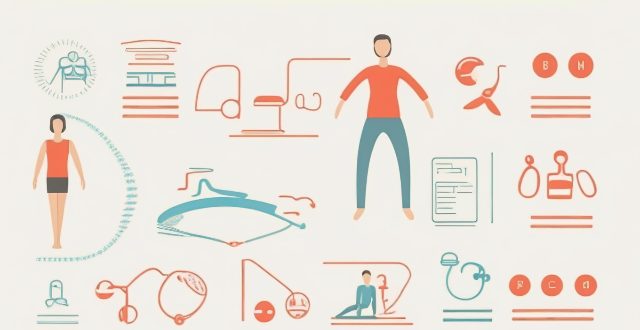
How much exercise is needed to reduce anxiety and depression symptoms ?
Exercise has been shown to reduce anxiety and depression symptoms, with moderate-intensity aerobic exercise for at least 150 minutes per week being effective. However, individual factors such as age, gender, health condition, and lifestyle can affect the amount of exercise needed. It is important to choose enjoyable and sustainable activities for long-term use, and seek professional help if struggling with mental health issues.

Is it necessary to have a gym membership to experience mental rejuvenation through exercise ?
Exercise is beneficial for mental health, but a gym membership isn't necessary. Benefits include reduced stress and anxiety, improved self-esteem, better sleep quality, and enhanced cognitive function. Gym pros: diverse equipment, group classes, personal training, community support. Cons: cost, time constraints, crowdedness. Alternatives: home workouts, outdoor activities, sports clubs, dance classes. The key is finding an enjoyable activity that can be consistently incorporated into one's lifestyle.
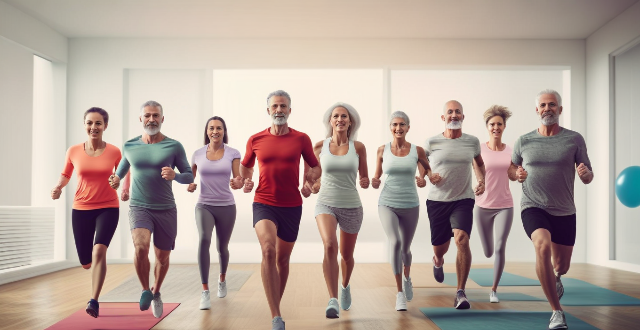
Can regular exercise prevent cognitive decline in older adults ?
Regular exercise may help prevent cognitive decline in older adults by promoting neuroplasticity, improving blood flow to the brain, and reducing inflammation. Multiple studies have found positive associations between physical activity and cognitive function in this age group. Guidelines recommend aerobic exercise, resistance training, and activities that improve flexibility and balance. Making exercise a regular part of daily life is key for maintaining cognitive benefits over time.